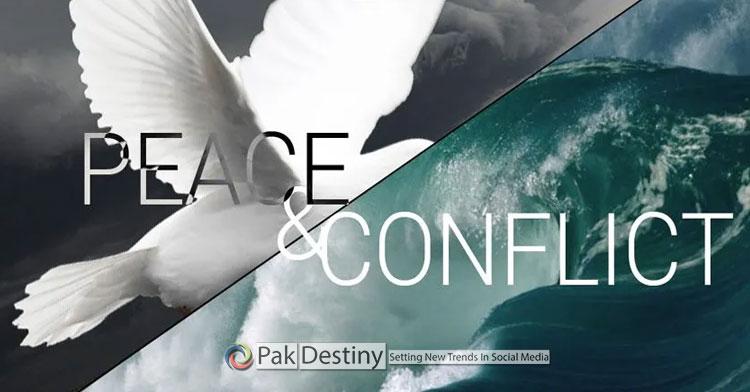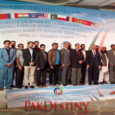
By Syed Shujaat Hussain
This Topic focuses on a nascent discipline which has a profound bearing on the course of socio-economic progress as the end goal of all scientific and technological development. The linkage between peace, technology and economic development calls for methodologies and modalities that are universal in their application. In the shaping of civilizations, both have a profound impact, for better or for worse.
In the postmodern world, many worries over the frightening prospect of scientific and technological prowess put to the production of an increasing mass of deadlier weapons of destruction. The first calls for an integration of the physical and the social sciences, so that no institution is exclusively of one category or the other, although each may have its own areas of emphasis. As for the second, the foremost practical imperative is to change the mindset of people through education at all levels, remove the causes of conflict, contain them early when they do arise, and explore every avenue for their resolution through non-violent means. This is where every one will have a seminal contribution to make through national policies, studies, research, educational programs and advocacy. Universities of Oslo, Bradford, Maryland, Harvard. Berkeley, and John Hopkins are some of the well reputed foreign universities who have done lot of work in this field.
A word about fundamentalism as a phenomenon in historic perspective. One of the most startling developments of the last century has been the emergence within every major religious tradition of a militant piety popularly known as “fundamentalism.” American Protestants were the first in the early decades of the twentieth century, to distinguish themselves from the more “liberal” Protestants, and called themselves fundamentalists who firmly believed in the literal meanings of their holy scriptures. Fundamentalism in its perverted form is not confined to the great monotheisms like Islam, Christianity and Judaism. There are Buddhist, Hindu, and even Confucian fundamentalists, who also cast aside many of the painfully acquired insights of liberal culture, and fight and kill in the name of religion and in the name of God, and strive to bring the sacred into the realm of politics and national struggle. Their militant segments have since evolved into radicals, fanatics and then finally terrorists with political, religious, economic, and social overtones.
Many people have the tendency to see truth as factual, historical and empirical in which “reason” provides a sole path to truth. While some others strongly believe that only rational thought cannot address questions of ultimate meaning that lie beyond the reach of empirical inquiry. Fundamentalists have turned the Mythos of their religions into Logos, to prove that their dogmas are scientifically true. As a result, they have distorted their tradition, narrowing it down, and ignoring the more tolerant, inclusive and compassionate teachings of religions, and have thus cultivated theologies of rage, resentment, and revenge.
This religious resurgence has taken many observers by surprise. In the middle years of the twentieth century, it was generally taken for granted that secularism was an irreversible trend and that faith would never again play a major part in world events. It was assumed that as human beings became more rational, they either would have no further need for religion or would be content to confine it to their immediately personal and private lives. But in the late 1970s, fundamentalists began to rebel against this secularist hegemony and started to wrest religion out of its marginal position and back to centre stage. Militancy in fundamentalism is unfortunately, now an essential part of the post-modem scene and will certainly play an important role in the domestic and international affairs of the future. It is an embattled form of spirituality which has emerged as a response to a perceived crisis: be it economic disparities, social injustice or denial of basic human rights. What can the liberals do to build the bridges and avert the possibility of future battles. Suppression, coercion, and use of ruthless force alone is clearly not the answer.
They lead to a backlash and make fundamentalists even more fanatics. Perhaps, a spiritual and undistorted approach as ordained by God which lays down that all divine religions were revealed to reform human beings and unite mankind, on one hand, and a more benevolent, tolerant and humane approach which addresses the fears, anxieties and needs of the fundamentalists by the developed world, on the other, might bring about reconciliation between traditional faith and modernity.
Conflict cuts across a wide spectrum of social, economic, political, psychological, technological and military factors. In fact, it permeates every aspect of human life in every country, region and the world. As conflict is the antithesis of peace and the mirror-image of the mind-set of individuals and society, we need to tackle the issue at that level. As the threat is universal, it has to be tackled internationally by winning the minds of the people through education, more education, higher education for development, justice and fair-play, equitable economic development, and a sound international mechanism for conflict resolution.
The author is former Engineer- In-Chief & Founding Rector National University of Sciences & Technology (NUST)

